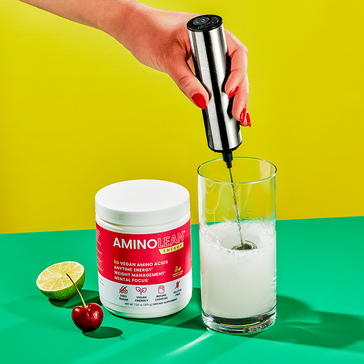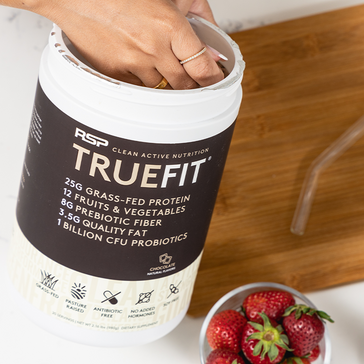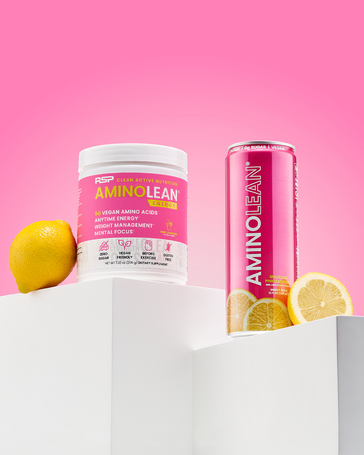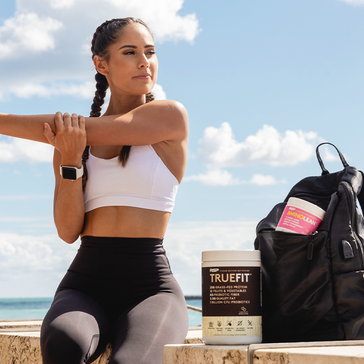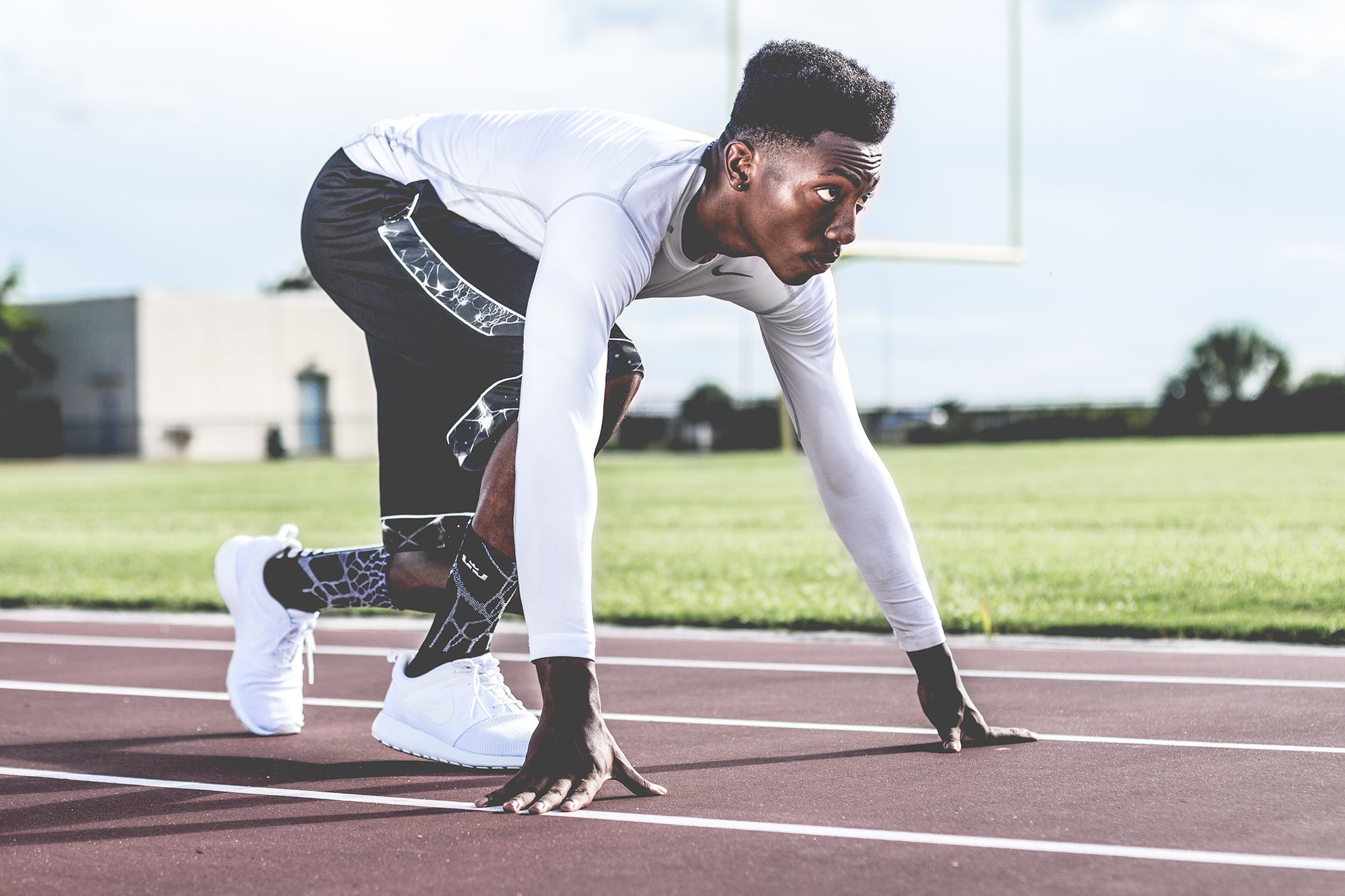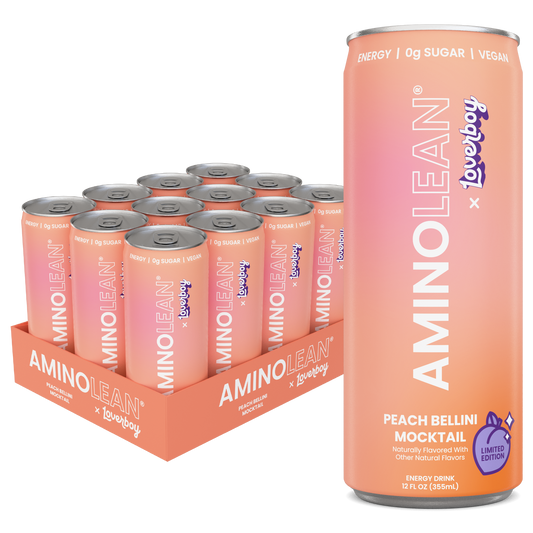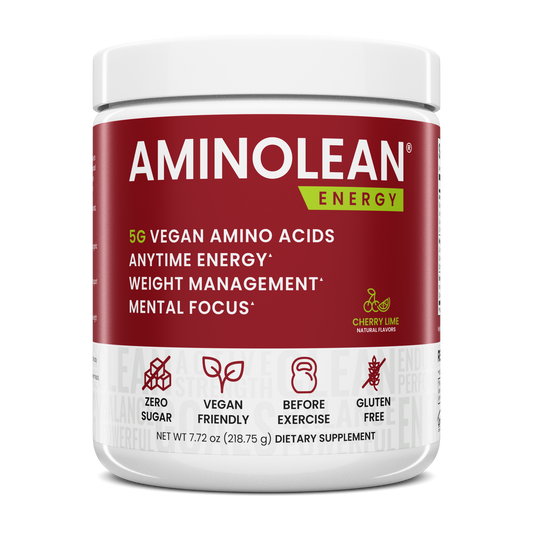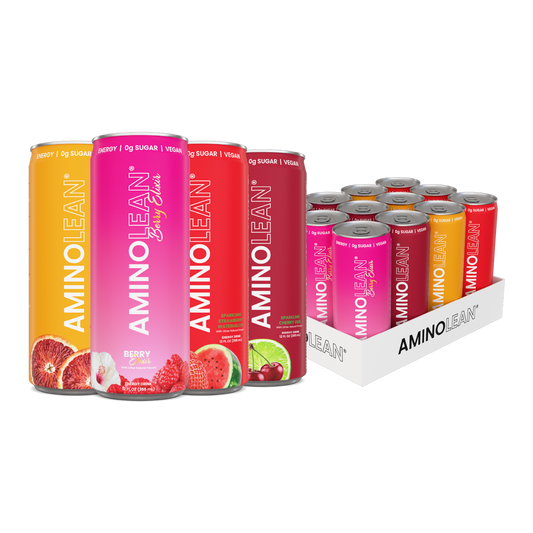If you’re reading this, chances are you’re familiar with the midday slump. Between our go-go-go schedules and failure to prioritize rest and relaxation, exhaustion is something many know too well.
But there’s an often overlooked factor behind low-energy levels, according to registered dietitian Maggie Michalczyk, R.D.N, founder of Once Upon A Pumpkin: your diet. “When you’re not consuming the fuel, or food, that your body needs in order to best carry out it’s everyday functions and activities, you’re going to feel incredible fatigued, distracted, and out of it.” That’s why she says tweaking your daily intake is one of the best ways to naturally support energy levels.
Below, five dietician-approved diet tips and tweaks for staying energized all day long.
Drink Up
You know you should be drinking more water than you do. But what you probably don’t know is that the body is about two-thirds water or that the brain is seventy-five percent water! Makes sense that being dehydrated would make your body feel out-of-whack then, right?
Michalczyk explains: When you’re dehydrated, the body doesn’t have enough fluid to perform it’s necessary functions, which can make you feel groggy, or like there are stones in your shoes. Plus, “being dehydrated can literally the brain to contract, which can result in headaches, dizziness, lightheadedness and overall feelings of fatigue and low energy,” she says.
The next time you feel like you hit a wall, try chugging two glasses of the clear stuff. And better yet: re-prioritize drinking more water all day long. While the amount of water needed to stay hydrated and energized varies based on things like age, gender, activity level, where you live, and how heavily you breathe she says a good rule of thumb is to drink somewhere between half an ounce to an ounce of water for every pound you weigh per day. “So if you weigh 160 lbs you should be drinking about 80-160 oz of water every day,” Michalczyk explains.
You can try adding fruit slices like lemons, limes, strawberries, or oranges to make the beverage taste better, says Valdez. “Choose a no-sugar-added sparkling water, using a water drinking app to set goals and track your water intake, or simply carrying a water bottle with you everywhere can also all help,” he says.
Go Green
This won’t surprise you, but eating vitamin and nutrient-packed fruits and veggies can support steady energy levels. For starters, eating the rainbow can help prevent nutritional-deficiencies, which Valdez says can make you feel constantly overworked and groggy, fruits and veggies supply your system with fuel. Additionally, “carbohydrates are the bodies preferred energy source, and fruits and vegetables contain enough to help boost your energy levels,” he says.
So while it it may be tempting to turn to something like a chocolate bar (or chocolate-chip chocked trail mix), next time you’re hungry, reach for something like an apple. With fiber, vitamin C, potassium, and complex carbs, an apple can help fight the fog, he says.
Beyond just a quick fix, Valdez says an overall balanced diet is a M-U-S-T for optimizing your energy levels. His suggestion: Try making half of your plate fruits and vegetables, and the other half a combo of fats and protein. “The right combinations of the food groups with every meal will help give you energy throughout the day, he says.
Back Away From The Booze
It may not seem like it when you’re boogying, beer-bottle in hand, but according to Valdez, “Frequent alcohol intake has a sedative effect that can make you feel constantly drowsy.” While how long alcohol cam impacts someone's energy levels varies from person to person, there are a few reasons why it does.
For starters, alcohol interferes with your sleep quality. Valdez explains: “Several hours after drinking, alcohol causes an increase of the stress hormones in the body. This rise in stress hormones can be stimulating and lead to more sleep disturbances and awakenings.” And course you’ll be zonked if you’re not catching Zzz’s.
Plus, a hangover can last up to 72 hours. “If you drink on a Saturday night, it is very possible that you may still symptoms of that hangover—headache, fatigue, nausea—on Monday at work,” explains Valdez.
If you like to drink, he says it’s best to limit alcohol intake in accordance with the American Guidelines for Americans. For women, that’s one drink per day and for men that’s up to two per day. (As a friendly reminder, a standard drink is one 12-ounce beer, one five-ounce glass of wine, or one one-ounce shot).
And when you do drink, try to down downing one cup of water for every alcoholic bevy you consume. “Many of the symptoms of a hangover are intensified by dehydration,” says Michalczyk.
Prioritize Complex Carbohydrates
While white carbs and sugary-snacks are absolutely delish, they’re one of the biggest culprits behind energy crashes. White carbs like pasta, white bread, and bagels are refined carbohydrates which means they are easily broken down into sugar molecules by the body. And sugar, well, is already sugar!
Why this matters: “Eating a lot of sugar and refined carbohydrates results in a blood sugar rush,” explains Valdez. “Our bodies respond to that rush by trying to bring our blood sugar back down as quickly as possible.” As a result, we experience a blood sugar crash that leaves us feeling drowsy.
Your solution: Avoid the candy bowl and vending machine. Instead, “eat complex carbohydrates, because these sugars are absorbed slowly, and therefore provide more steady energy.” says Valdez. Some options: quinoa, oatmeal, sweet potatoes, lentils, nuts, fruits, and veggies.
Experiment With Adaptogens
Okay, so it’s better to obtain energizing-nutrients from whole foods than supplements, according to Valdez. But “certain supplements can help to support the body’s energy processes,” he says.
Adaptogens, for instance, which are herbs that help the body respond to stress are gaining attention for their anti-fatigue and improved focus benefits. While research on the super-herbs is still pretty limited, Valdez says, “one adaptogen in particular, rhodiola rosea, has repeatedly been found to reduce fatigue and increase concentration.”
Other adaptogens like maca root, cordyceps, and ashwagandha have also been shown to support energy and focus. If you’re interested in experimenting with adaptogens, start by checking in with your doctor because some herbal supplements can interfere with the effectiveness of certain prescription meds.
